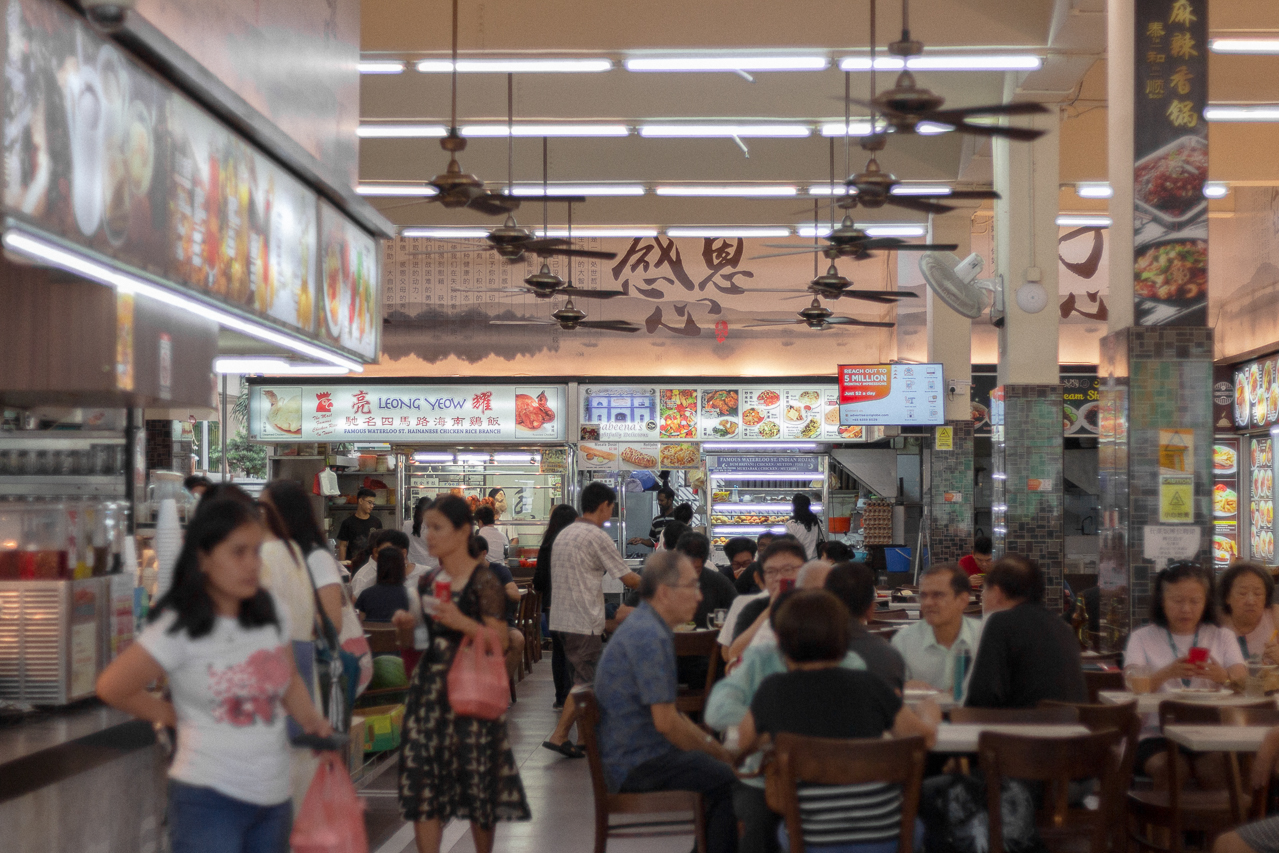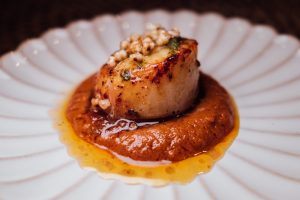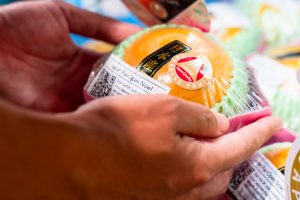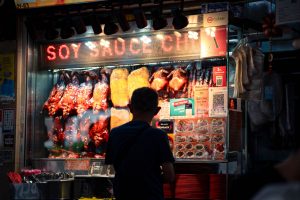Top image credit: Rice file photo by Zachary Tang
After the excesses of the festive season, most of us have probably resolved to give our poor abused stomachs a break. If December is about indulgence, January is for penitence, and earnest resolutions to ‘drink less’ or ‘cut down on sugar’.
However, while we might aim to be more conscious of what we eat, this is generally limited to watching our calorie intake or Googling the latest fad diet. And although food is practically an Issue of National Importance, for most of us, appreciating it means either a) childhood notions of thankfulness (being lectured to finish everything on your plate, given the starving children in Africa), or b) connoisseur-level knowledge (flaunting your opinions on single-origin coffee or where to find the best Hokkien mee as some kind of weird flex).
But whatever its form, appreciation is fundamentally about awareness. You can’t be grateful for your food if you’re not conscious of its significance. And you can’t call yourself any sort of gourmet, even an amateur one, if you don’t make an effort to learn about it.
This is the message at the heart of Lost Feast: Culinary Extinction and The Future of Food, which I listened to on Storytel in the run-up to Christmas. To its author, the culinary geographer and academic Lenore Newman, appreciating the food on your plate means not only savouring it, but thinking about the place it occupies in our identities and cultures—and what it cost to get it to the table.
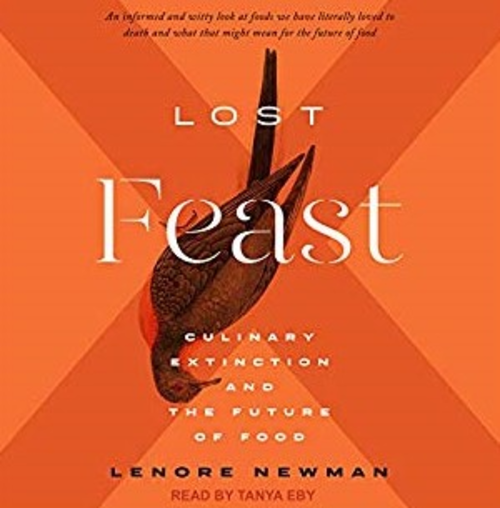

“Between the Victorian era and the present,” writes Newman, “we have created a new planet, the unintentional effect of millions of intentional acts.”
The TL;DR version goes something like this. In the Pleistocene (better known as the Ice Age), homo erectus began to farm and domesticate animals. This continued for the next couple of millennia, as homo sapiens slowly and irreversibly transformed the landscape around him, hellbent on achieving the economically-possible-but-practically-ruinous feat of lowering the cost of food while producing more of it than ever before.
In theory, we should be smart enough—or capable of developing sufficiently sophisticated technology—to help us see the traps we’re laying for ourselves. But as Newman repeatedly demonstrates, through astonishingly vivid and detailed anecdotes, this never actually happens.
To this end, Lost Feast is strongest when it uses narrative to explain where our greed will hit us hardest: our plates.
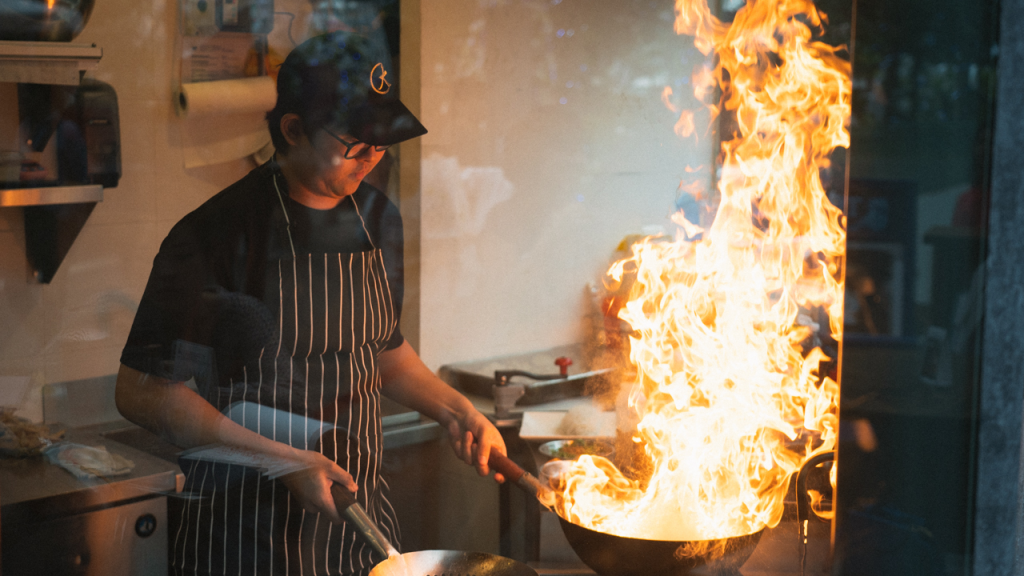
Native Americans originally hunted only the adults, conscious of the need to maintain pigeon stocks. But when the early European colonists settled, they saw a pest responsible for damaging crops. Its sheer numbers convinced them, somewhat ironically, that the New World possessed limitless resources for them to plunder.
They began hunting pigeons down by the thousands. This would have been bad enough, except that the settlers also developed transport infrastructure, refrigeration, and industrial farming (which cleared pigeon habitats by the acre).
Slowly, pigeon numbers decreased enough that it went from a cheap and abundant protein for the lower classes to a delicacy prized by New York’s elite.
By the end of the 19th century, even the richest Manhattanites couldn’t find any to eat: they had disappeared entirely from the wild. The pigeon staggered on, clinging to the fringes of existence until September 1914, when the last of the species died in captivity in the Ohio Zoo.
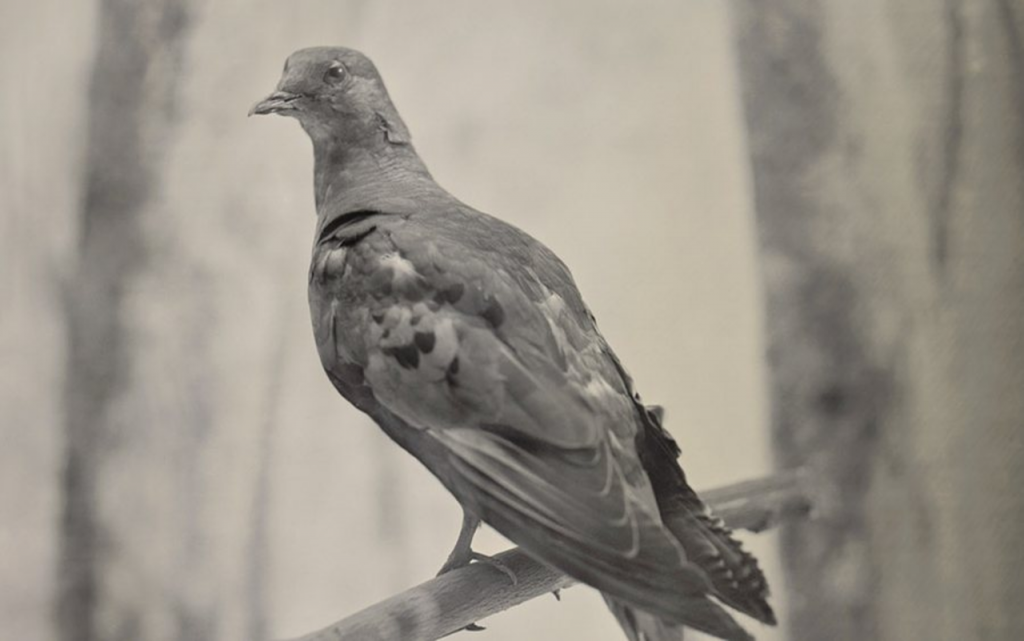
However, culinary extinction is by no means a ‘Western’ problem. And if anything, Singapore has more to lose than most because of our reliance on imported food.
There are two ways culinary extinction can take place. You either eat a species off the face of the earth, or destroy its natural habitat in the name of economic development (and if you’re particularly ambitious, both).
The latter is what’s now happening with cockles. According to a 2018 report by Channel NewsAsia, Malaysia (from which Singapore imports 99% of its cockles) produced 100,000 tonnes of cockles for domestic consumption and export in 2005. By 2015, this had dropped to 16,000, and the figure is still falling.
Cockles are mainly bred in the waters around Selangor, Perak, Penang, and Johor. Unfortunately, those same waters are now filled with agricultural pesticides and chemical runoff thanks to large-scale farming and industrialisation—and cockles cost more than double what they used to.
At the moment, 90% of Singapore’s food supply is imported. Although there are plans to triple domestic production by 2030, basic economics is clear: where demand is inelastic, a fall in supply leads to an increase in prices. And while restaurateurs and hawkers might be willing to absorb these for now, or just charge a little more for their products, a large-scale supply shock in staple foods—say, rice or eggs—would directly affect consumers.
In other words, the questions are bigger than whether char kway teow means anything without cockles. We should also be asking: does it make sense for that plate of glory to cost as little as it does? And how long can we continue to ignore the many ways in which our relationship to food is fundamentally broken?
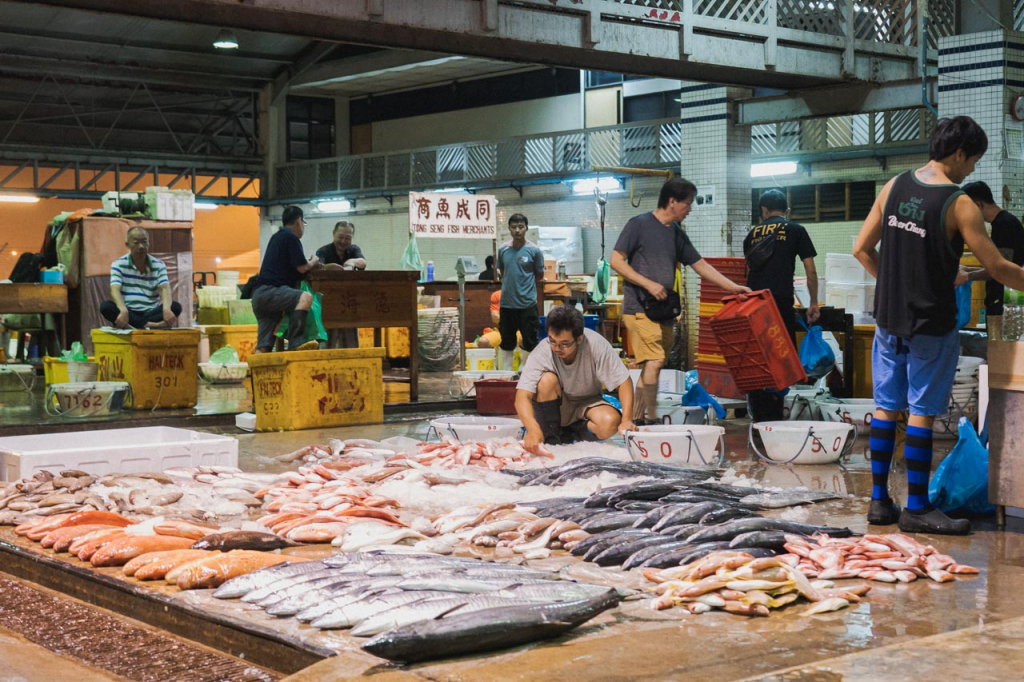
It does not call for militant veganism or an immediate boycott of the beef industry. Unlike texts like David Wallace-Wells’ The Uninhabitable Earth, which should only be read with a stiff drink in hand and puppy videos on standby, Lost Feast is saved from being a downer by the sheer force of its author’s curiosity.
This isn’t to say it’s easy listening. Lost Feast is shot through with angst over how we’ll eat in the future, and regret over the damage we’ve already wrought. But amidst all this, it’s impossible to discount the deep awe in its passages for the immense pleasures of good food—and the sheer scope of human creativity.
For every anecdote about how we have polluted, plundered, or ravaged the planet in the name of progress, Newman has another about something we’ve created.
There’s Impossible meat and synthetic rennet (a kind of enzyme used in cheese-making, originally found in the lining of calves’ stomachs). Developments in transport, commerce, preservation, and production that make it possible for a market in British Columbia to stock kaffir lime leaves, fresh wasabi, and dried ancho peppers. And at the heart of this is another, slightly more palatable truth: all this was made possible because we really, really love our food.
In this, I’d argue that the real subject of Lost Feast isn’t culinary extinction, but the dual-edged nature of human ingenuity. After all, if humans have shown a limitless capacity for short-sightedness and screwing up, then it holds that we also have the ability to fix this. All that matters is whether we’re hungry enough.
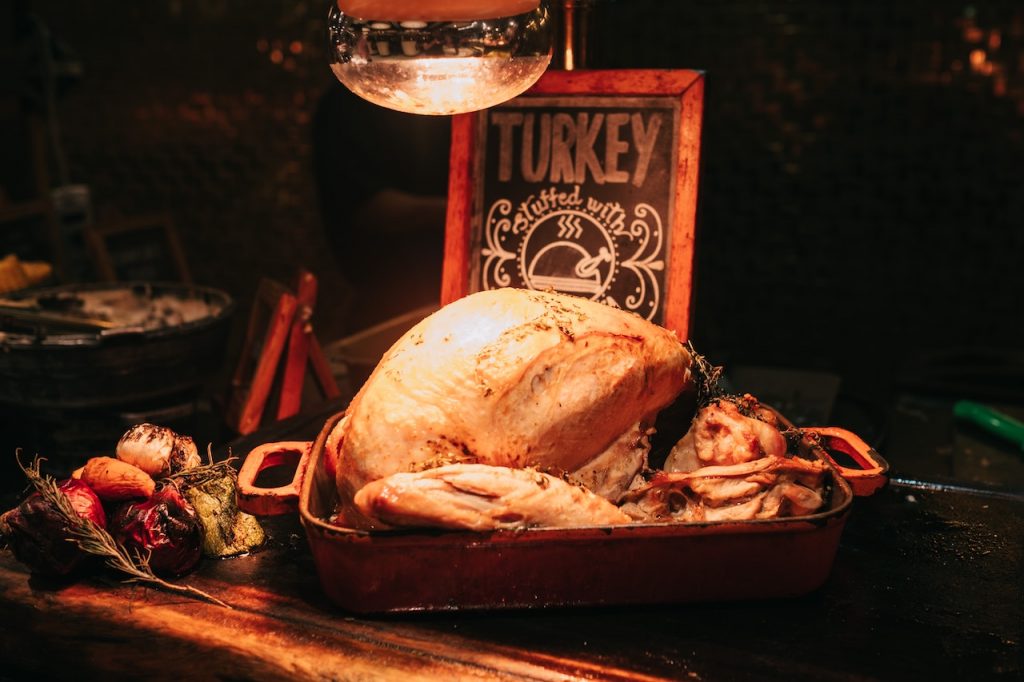
“We need to understand how difficult it is to grow food, or we’re not going to appreciate it,” he mused. “That’s something one of the speakers said this morning — that we need to appreciate food for what it is, [and] not just something you take off the shelf.”
Behind us, waiters rolled out the hotel’s lunch buffet—glazed salmon, pasta, sushi— in gleaming silver trays.
I thought about his comments as I listened to Lost Feast in the days leading up to Christmas, while my mum and I planned what to cook for Christmas dinner. It is easy, in a season so readily associated with abundance, to take the feasts we indulge in for granted—to overlook not only the love and labour it took to make them, but the very fact that we get to enjoy these delicacies in the first place.
My family’s spread, for instance, contained mushrooms brought back from a holiday in France. A turkey, raised on a farm somewhere in the American South. There were sausages from Japan and asparagus from Malaysia. Everything was drowning in butter made from Australian cows. Listening to Lost Feast was a timely reminder that enjoying all these in the same meal, on the same table, is nothing short of a miracle.
As January gets under way, beyond the usual attempts at eating more healthily, what if we committed to appreciating our food in all senses of the word? What if, for example, we remembered to stop and savour the way good butter melts on hot kaya toast, or how a cup of coffee at the right time makes everything better? What if we made the effort to buy produce from local farms, to check if the fish we’re eating is sustainably sourced, or to skip meat just one day a week?
We can’t regain the things we’ve lost, but we can always strive not to lose the things we’ve gained. If we do, then this feast, while not infinite, might just last us a little bit longer.
All the books featured are available as audiobooks on Storytel, a subscription-based platform. Rice readers get a 30-day free trial, so download their app to get started, and check out over 110,000 titles they have available for streaming or download.
What food would you miss most if it disappeared? Tell us at community@ricemedia.co.

